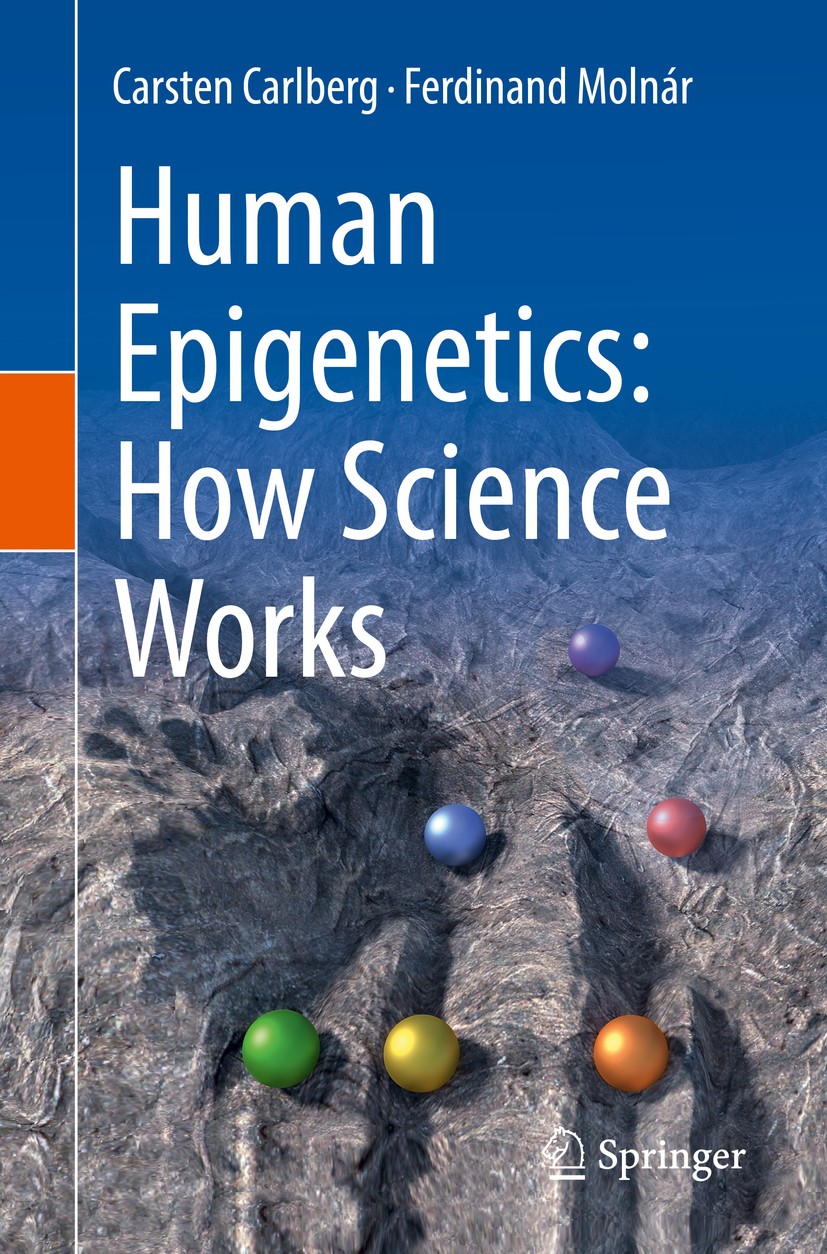| 书目名称 | Human Epigenetics: How Science Works | | 编辑 | Carsten Carlberg,Ferdinand Molnár | | 视频video | http://file.papertrans.cn/430/429142/429142.mp4 | | 概述 | Is the first undergraduate textbook on epigenetics with a clear focus on humans.Links the "hot topic" epigenetics to numerous disciplines, such as embryogenesis, nutrition and neuroscience.Describes t | | 图书封面 |  | | 描述 | .The view “It’s all in our genes and we cannot change it” developed in the past 150 years since Gregor Mendel’s experiments with flowering pea plants. However, there is a special form of genetics, referred to as .epigenetics., which does not involve any change of our genes but regulates how and when they are used. In the cell nucleus our genes are packed into chromatin, which is a complex of histone proteins and genomic DNA, representing the molecular basis of epigenetics. Our environment and lifestyle decisions influence the epigenetics of our cells and organs, i.e. epigenetics changes dynamically throughout our whole life. Thus, we have the chance to change our epigenetics in a positive as well as negative way and present the onset of diseases, such a type 2 diabetes or cancer...This textbook provides a molecular explanation how our genome is connected with environmental signals. It outlines that epigenetic programming is a learning process that results in epigenetic memory in each of the cells of our body. The central importance of epigenetics during embryogenesis and cellular differentiation as well as in the process of aging and the risk for the development of cancer are discu | | 出版日期 | Textbook 2019 | | 关键词 | Genetics; Inheritance; Chromatin; Molecular medicine; Cell nucleus; gene expression | | 版次 | 1 | | doi | https://doi.org/10.1007/978-3-030-22907-8 | | isbn_softcover | 978-3-030-22906-1 | | isbn_ebook | 978-3-030-22907-8 | | copyright | Springer Nature Switzerland AG 2019 |
The information of publication is updating

|
|
 |Archiver|手机版|小黑屋|
派博传思国际
( 京公网安备110108008328)
GMT+8, 2026-2-9 01:46
|Archiver|手机版|小黑屋|
派博传思国际
( 京公网安备110108008328)
GMT+8, 2026-2-9 01:46


